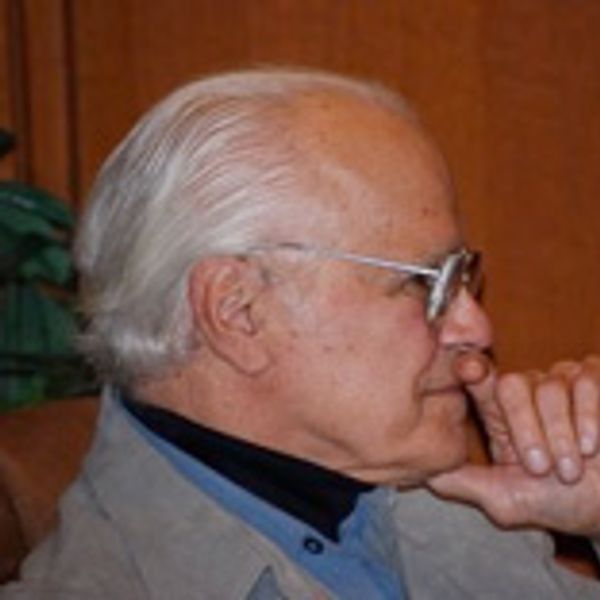Lia Purpura, Parasol Mushroom (detail), featured in AGNI 102
Some Reflections
Most animals can’t,
but gorillas and chimpanzees,
indignantly at first,
then both surprised and amazed,
and then very shyly,
can approach a full-length mirror
and spend just as much time
as seems available
before turning away
to the other necessities
of confinement. Elephants
need to pass by only once
those fragments of themselves
to be sedately shocked,
to be turned for another look,
to remain standing there
enormously interested
for a moment, but will go on
to more important matters
and food for thought. Ravens
and porpoises, African gray
and yellow-naped Amazon
parrots can all look
in mirrors and know at once
that isn’t a near neighbor,
a rival or relative
or enemy gawking back,
but themselves, there, all set
to recapitulate gestures,
or any old poses or faces.
They think it over once
or twice and get over it,
unlike some I could mention.

David Wagoner
David Wagoner has published eighteen books of poems, most recently A Map of the Night (University of Illinois Press, 2008). Copper Canyon Press will publish his nineteenth, After the Point of No Return, in 2012. He has also published ten novels, one of which, The Escape Artist, was made into a movie by Francis Ford Coppola. He won the Lilly Prize in 1991 and has won six yearly prizes from Poetry magazine. He was a chancellor of the Academy of American Poets for twenty-three years. He has been nominated for the Pulitzer Prize and twice for the National Book Award. He edited Poetry Northwest from 1966 to its end in 2002. He is professor emeritus of English at the University of Washington and teaches in the low-residency MFA Program of the Whidbey Island Writers Workshop. (updated 4/2012)
